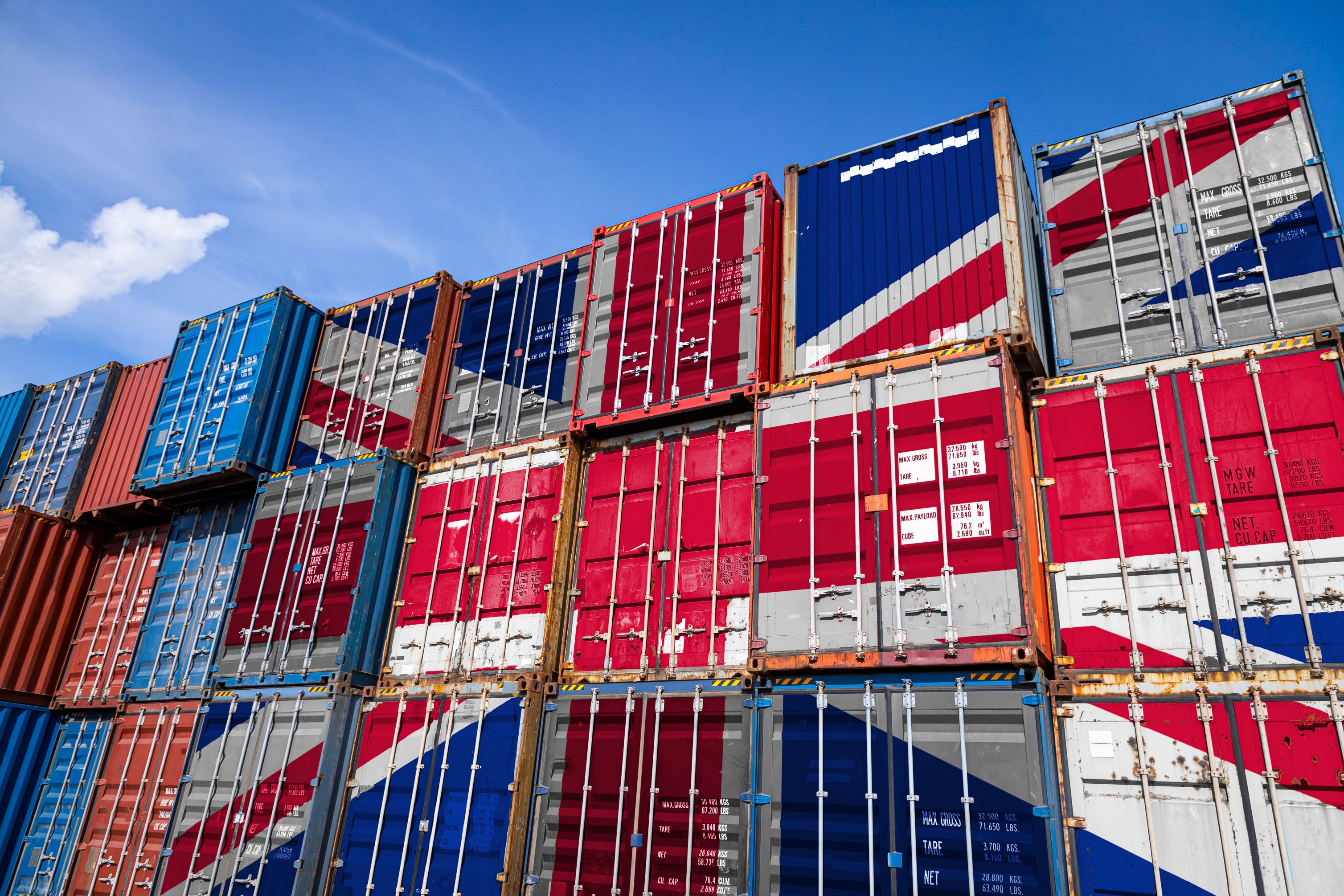
The UK has entered a technical recession after GDP contracted for the second consecutive quarter at the end of 2023.
Figures from the Office for National Statistics (ONS) were slightly worse than economists had forecasted, with the economy shrinking by 0.3% in Q4 last year, following a 0.1% decrease in Q3.
Economists polled by Reuters had predicted another 0.1% decline for the end of last year.
Trade drops
The stagnant figures for the overall economy are accompanied by a drop in trade for goods and services in Q4.
ONS’ “early estimates” show that services exports fell by 4.4% (£5.2bn) with goods down by 0.4% (£0.4bn). Imports of services fell by 0.5% (£0.4bn), though goods imports increased by 0.7% (£1bn).
Goods exports to the EU in particular saw a drop of 1.1% (£0.5bn), though sales to the rest of the world rose slightly at 0.3% (£0.1bn).
Chemical and fuels
A drop in fuel and chemical exports to the continent was highlighted by the ONS:
“The fall in chemical exports was because of lower exports of organic chemicals to Ireland, and the decrease in fuel exports was because of a fall in exports of crude oil to the Netherlands.
“Increased exports of mechanical machinery and aircraft to Germany contributed to the rise in exports of machinery and transport equipment.”
IOE&IT view
Chris Martin, director of external affairs at the Institute of Export & International Trade (IOE&IT), remarked that the news of a recession was not a surprise but that it highlighted the need for government to increase its efforts to get more businesses trading internationally.
Speaking about the GDP figures today (15 February), he told the IOE&IT Daily Update:
“This technical recession highlights the UK’s sluggish growth during a time in which businesses continue to be impacted by inflation, the effects of international conflicts and the after-effects of the pandemic.
“It is clear that trade is an important solution for rebooting the UK’s economic growth. Businesses that trade overseas are more productive, employ more people and more sustainable.
“IOE&IT will continue to work with industry and government to support businesses to increase their international trade, particularly MSMEs.”
Political backdrop
The news will be a blow to prime minister Rishi Sunak, who pledged to “make the economy grow” last year.
With an election likely to occur in 2024, Labour has unsurprisingly seized on today’s statistics, saying Sunak’s plans are “in tatters”.
“The prime minister can no longer credibly claim that his plan is working or that he has turned the corner on more than 14 years of economic decline under the Conservatives that has left Britain worse off,” said shadow chancellor, Rachel Reeves, as reported in the FT.
Chancellor Jeremy Hunt said there were signs that the UK was “turning a corner”, however, and he was cautiously optimistic about yesterday’s report that inflation had held steady at 4% in January.
“Forecasters agree that growth will strengthen over the next few years, wages are rising faster than prices, mortgage rates are down and unemployment remains low,” he said.



